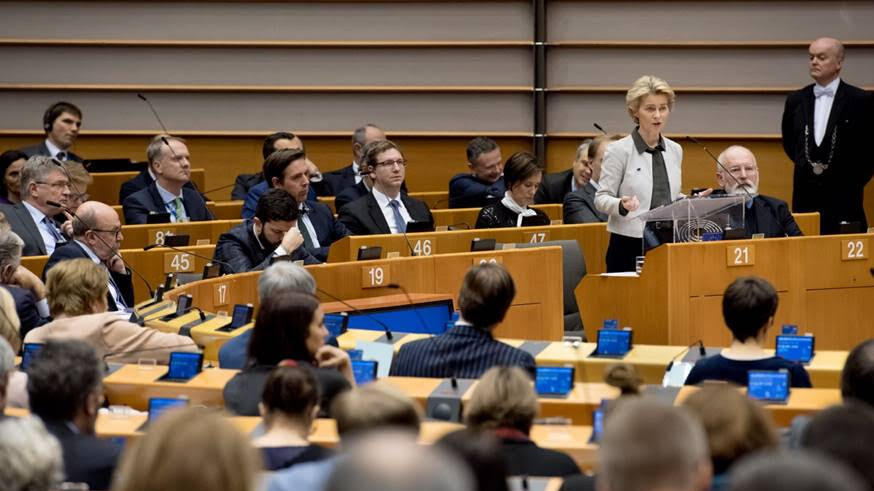 Policy & Regulation
Policy & RegulationReflections on the European Commission’s proposal for a European Green Deal
Summary
The European Commission has published its European Green Deal. It covers all sectors of the economy, notably transport, energy, agriculture, buildings, and industries such as steel, cement, ICT, textiles and chemicals. The proposal states that by March 2020 the Commission will publish an industry strategy to support the green transformation. Only 12 % of the materials used by EU industry come from recycling. A holistic approach is definitely needed for industry to make the sector more sustainable and more competitive globally. It will be important for the Commission to thoroughly consult to ensure all stakeholders can provide important input to these initiatives. The Commission
EEIP looks forward to providing its neutral platform to encourage dialogue on this important topic. Follow the latest developments through EEIP website and our social media channels! Click here for more information on the EU Green Deal details and more details on how the European Climate Law. and how you can visit the Commission’s European Climate Climate Law here.
Open full article
Reflections on the European Commission’s proposal for a European Green Deal
If we are in a climate crisis, it is time to leave no stone unturned. In the 1970s, there were two major oil crises and action was mobilised on many fronts. The International Energy Agency was created to front the work of the western developed countries. They were major crises, no doubt. But they were not existential crises as we are facing now. The journalist David Wallace-Wells, as one commentator, recently wrote in his book The Uninhabitable Earth: Life after Warming that the impacts of climate change will be much graver than most people realise. We can debate endlessly how dire things will get, but all indications are that we are in the throes of a dangerous period and we may be reaching some drastic climate tipping points.
To show leadership and make some major steps forward, the European Commission has published its European Green Deal. It covers all sectors of the economy, notably transport, energy, agriculture, buildings, and industries such as steel, cement, ICT, textiles and chemicals. The Commissions calls this a roadmap for making the EU's economy sustainable by turning climate and environmental challenges into opportunities across all policy areas and making the transition just and inclusive for all.
To set into legislation the political ambition of being the world's first climate neutral continent by 2050, the Commission will present within 100 days the first ‘European Climate Law'.
How is industry treated?
The proposal states that by March 2020 the Commission will publish an industry strategy to support the green transformation. The Commission states that a key aim will be to stimulate the development of new markets for climate neutral and circular products. Also, the decarbonisation and modernisation of energy-intensive industries such as steel and cement is essential.
Linked to this on industry, the Commission will publish a new circular economy Action Plan to help modernise the EU’s economy.
This new approach to industry is important because the industrial sector accounts for 20 % of the EU’s GHG emissions and from 1970 to 2017, the annual global extraction of materials tripled, and it continues to grow. Sadly, only 12 % of the materials used by EU industry come from recycling. A holistic approach is definitely needed for industry to make the sector more sustainable and more competitive globally.
All of this is welcome. It will be important for the Commission to now thoroughly consult to ensure all stakeholders can provide important input to these initiatives. EEIP looks forward to providing its neutral platform to encourage dialogue on this important topic.
Follow the latest developments through EEIP website and our social media channels!



